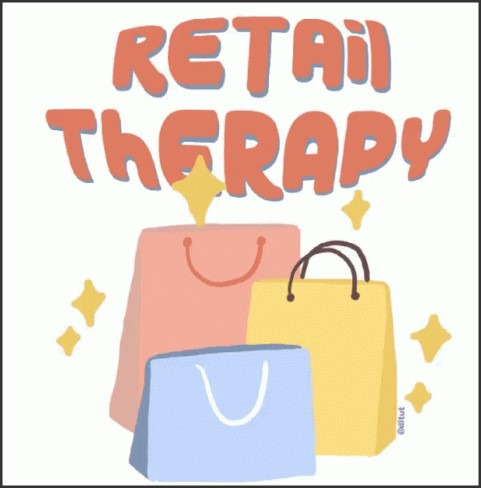Retail Therapy: More Than Just Shopping

Source: tenor.com
Retail therapy, often seen as a lighthearted term, actually holds a profound place in our lives. It’s more than just shopping; it’s a means of self-expression, relaxation, and even healing. In this article, we’ll explore the concept of retail therapy, its psychological impact, and how it can be both a self-care practice and a way to boost our well-being.
1. Retail Therapy and Emotional Well-being:
Retail therapy isn’t just about acquiring material possessions; it’s about the emotional benefits it can bring. When we shop for things we love, our brains release dopamine, the “feel-good” hormone, which can lift our mood and reduce stress.
2. A Sense of Control:
Shopping can provide a sense of control in a world that often feels unpredictable. When we make choices about what to buy and how to style our lives, it can empower us and boost our self-esteem.
3. Self-Expression:
Our clothing and possessions are an extension of our personalities. Retail therapy allows us to express our individuality and creativity through our choices, whether it’s fashion, home decor, or hobbies.
4. Mindful Consumption:
While it’s essential to acknowledge the positive aspects of retail therapy, it’s also crucial to practice mindful consumption. Instead of impulse buying, consider making thoughtful, intentional purchases that align with your values and needs.
5. A Source of Comfort:
During challenging times, retail therapy can offer comfort. Shopping for items that bring joy can be a way to self-soothe and find solace.
6. The Social Aspect:
Retail therapy often includes the social aspect of shopping with friends or family. The shared experience of exploring stores and finding treasures can deepen connections and create lasting memories.
7. Retail Therapy Beyond Shopping:
Retail therapy isn’t confined to purchasing physical goods. It can also extend to experiences, such as dining out, attending events, or treating oneself to a spa day. These experiences can offer similar emotional benefits.
8. Balance and Moderation:
As with any coping mechanism, balance is key. While retail therapy can be a positive outlet, it’s essential to be mindful of overspending or using shopping as the sole means of managing stress.
Conclusion:
Retail therapy is a multifaceted concept that goes beyond just indulging in shopping sprees. It encompasses emotional well-being, self-expression, and even social connection. When practiced mindfully and in moderation, it can be a valuable self-care tool for boosting your mood and overall happiness.





